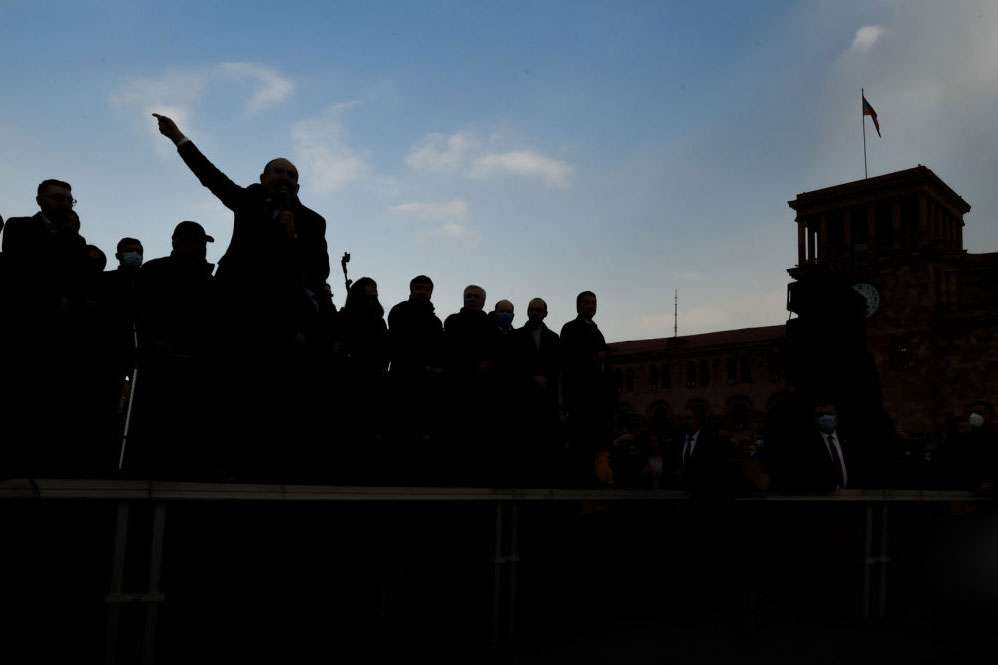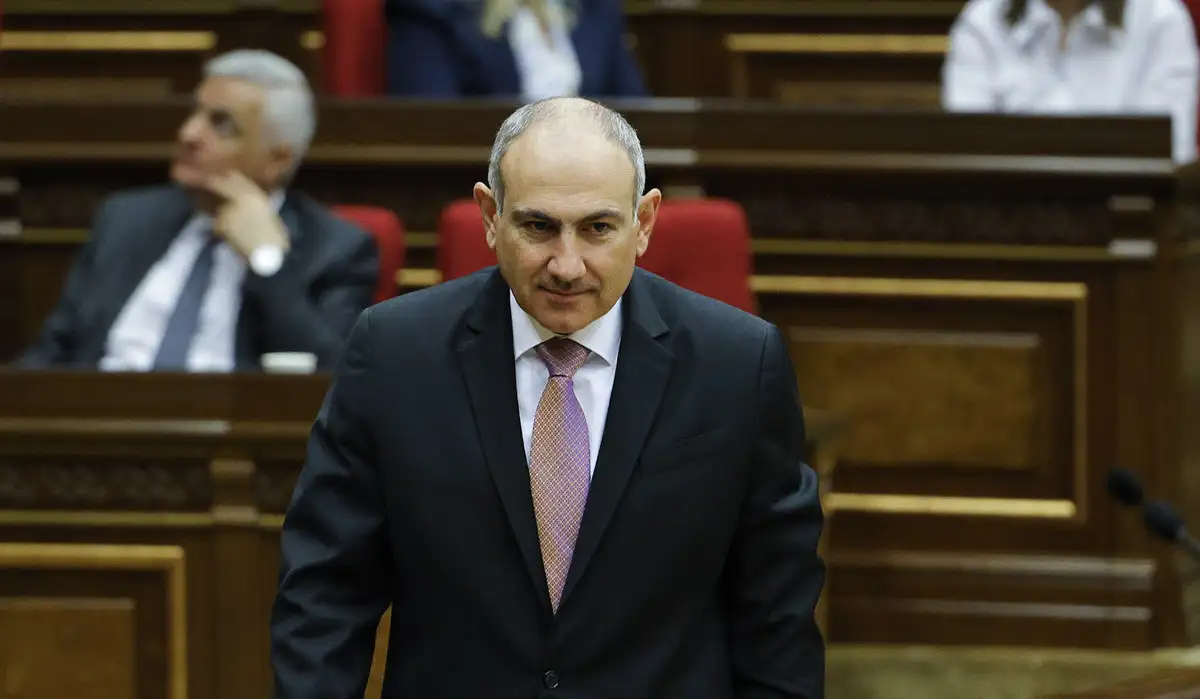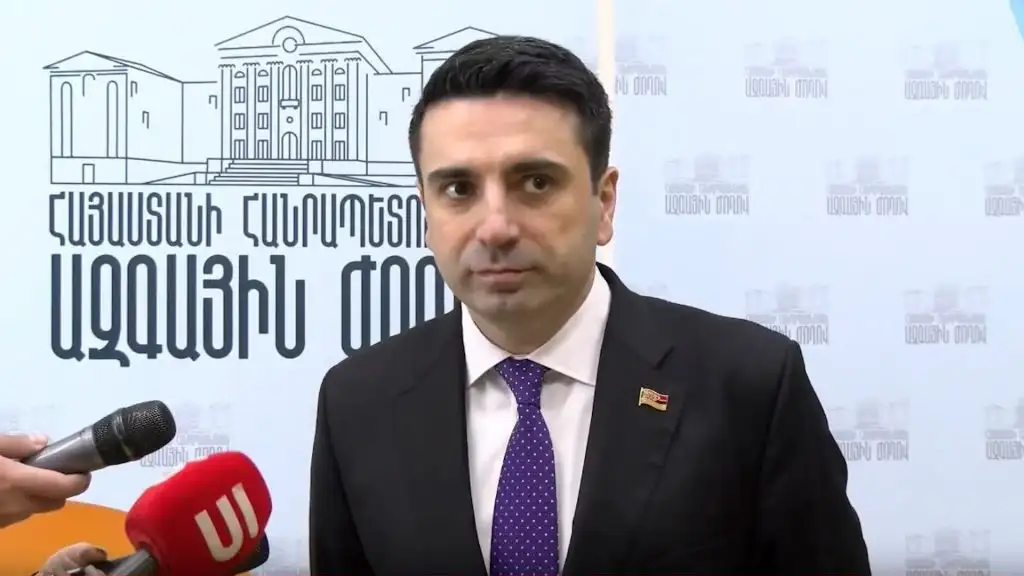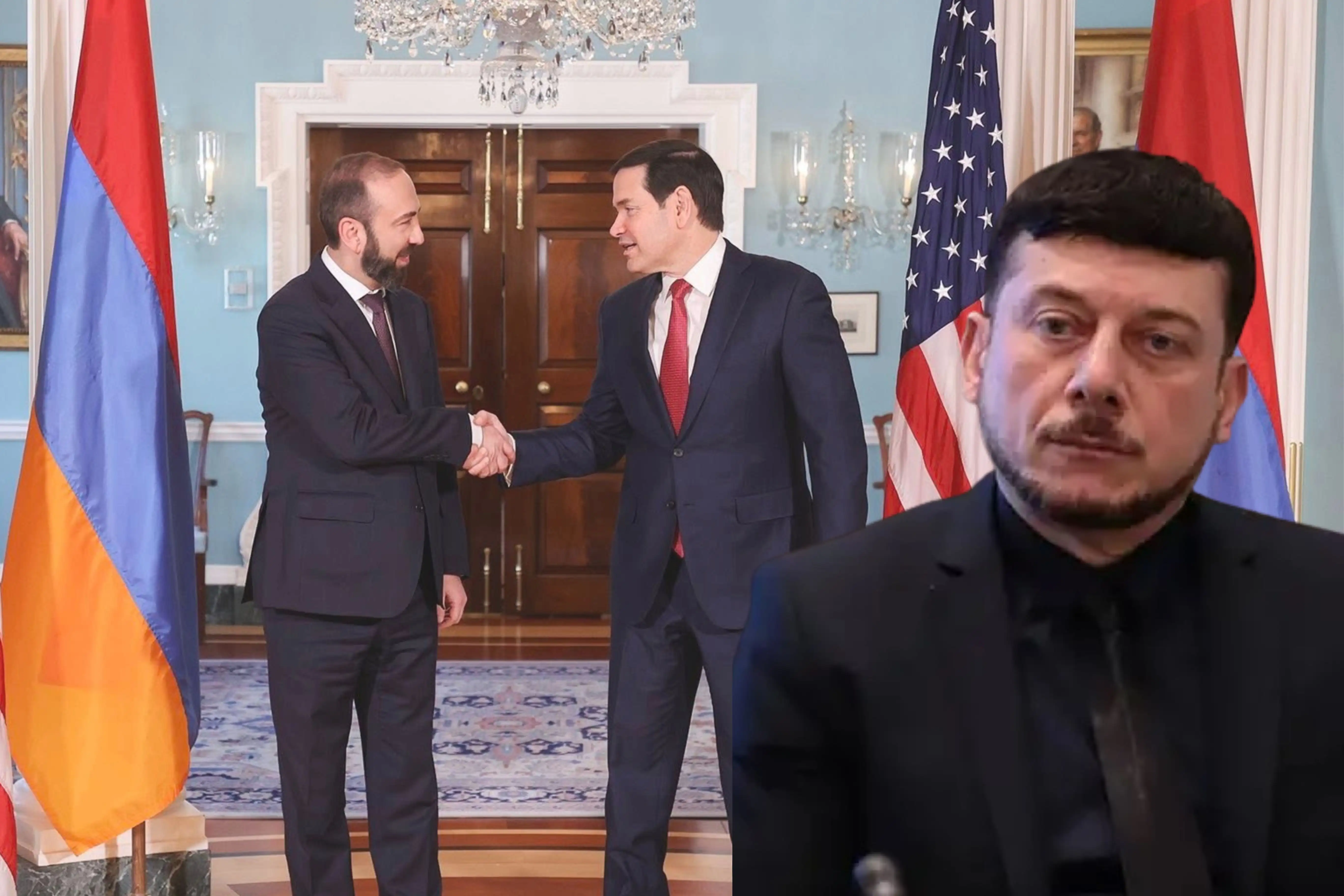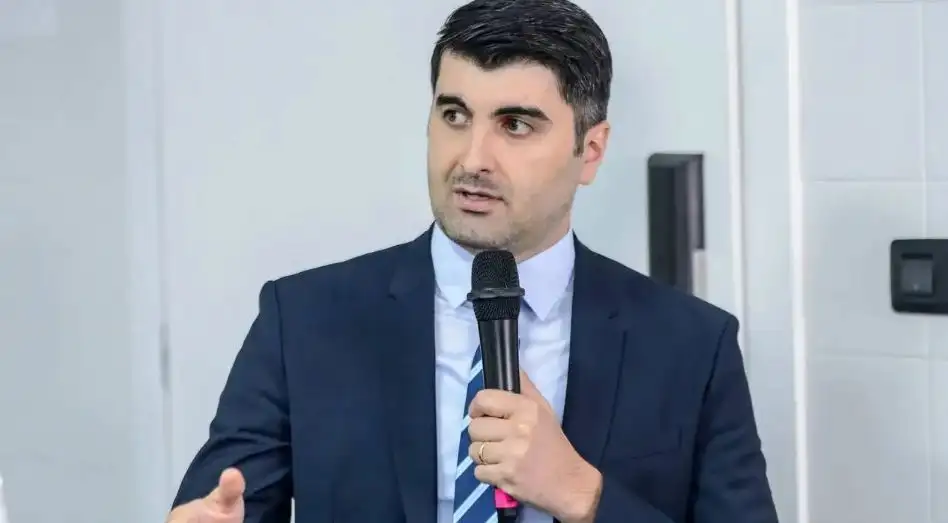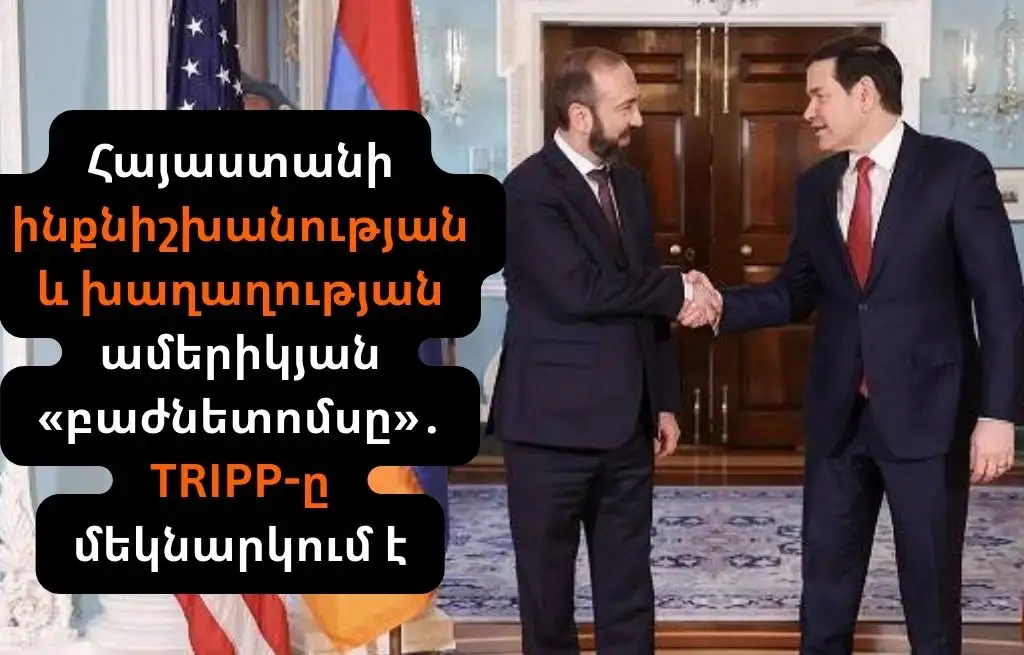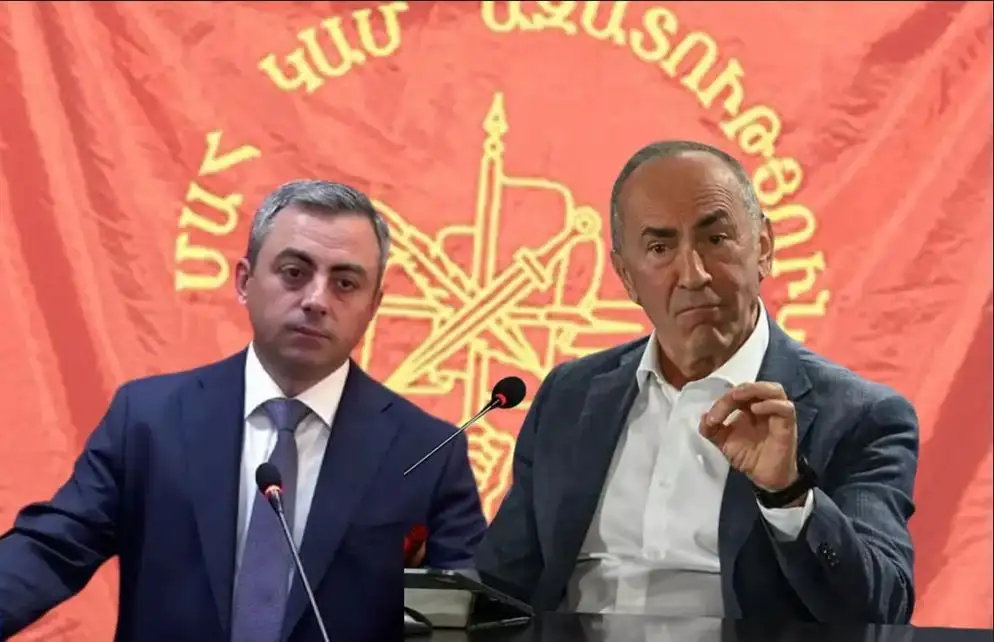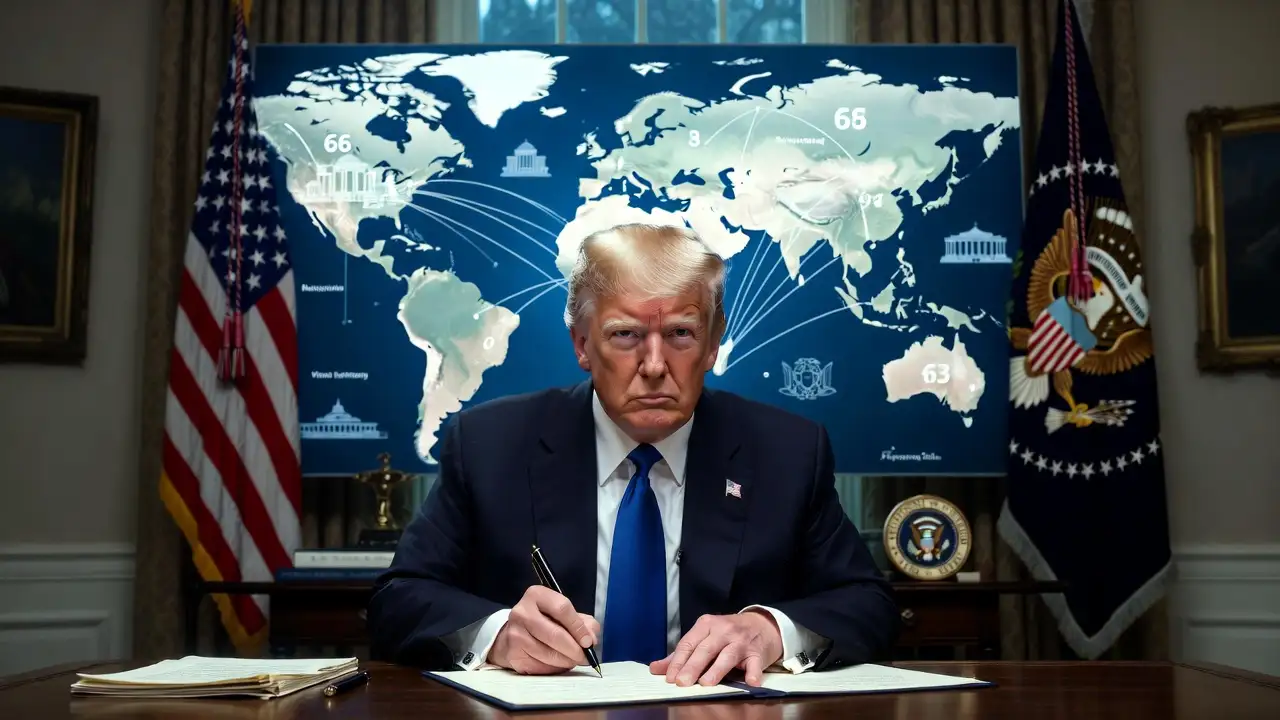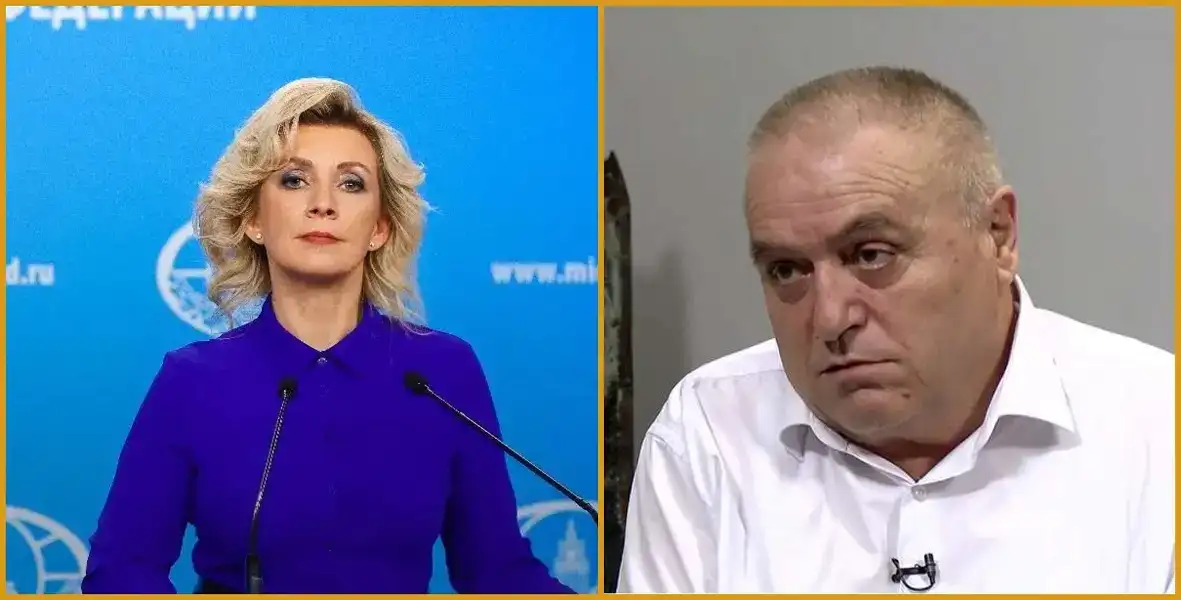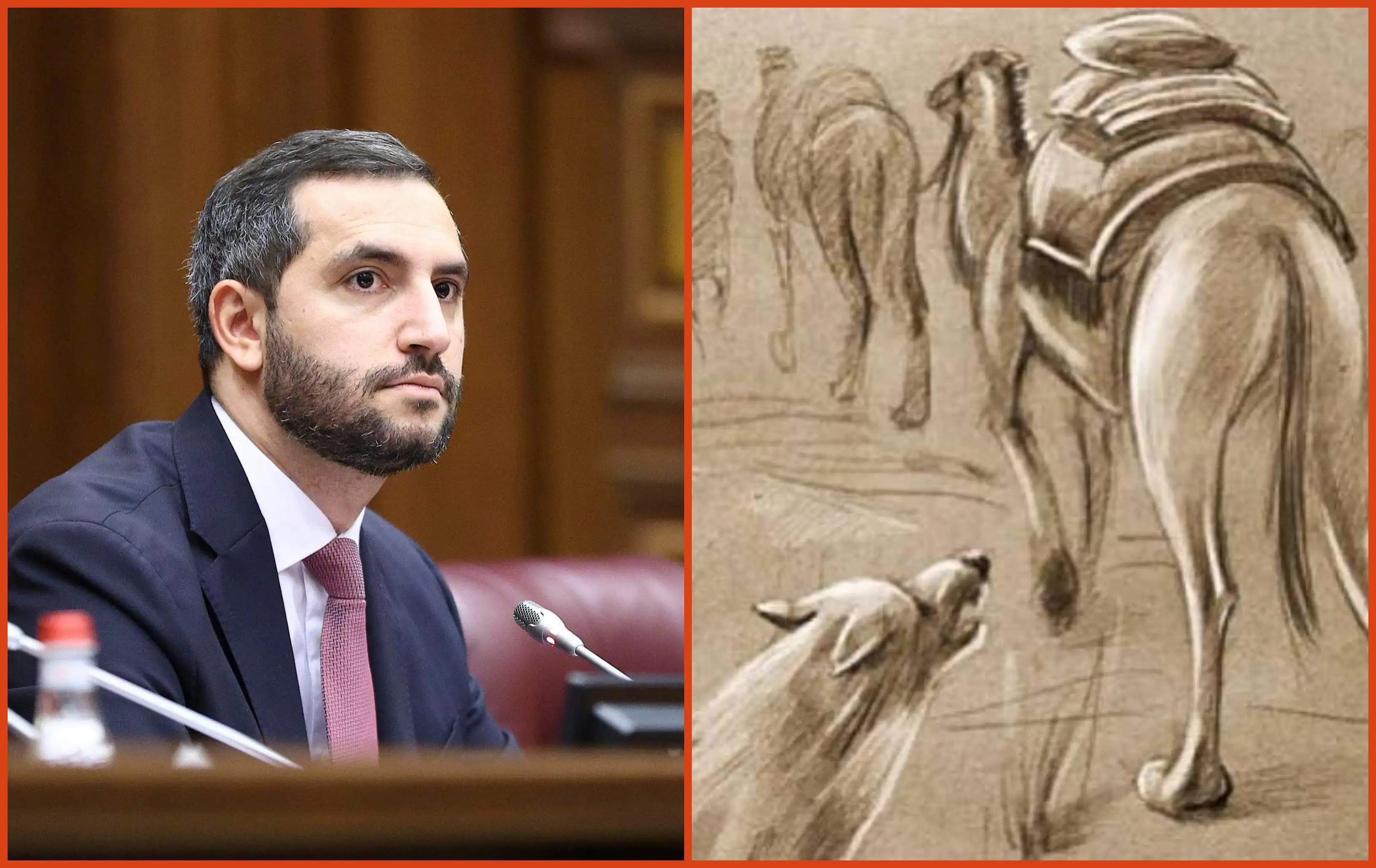Radar Armenia presents the memorable events in Armenia's domestic political life in 2024.
And so:
-
The year 2024 started quite "stormy." On January 3, Prime Minister Nikol Pashinyan visited Lori and got acquainted with the government's plans. Pashinyan revealed many problems in the school, particularly low-quality attached hangers, which quickly fell off, and cheap showers and faucets. The day after the visit, on January 4, Lori governor Aram Khachatryan and the chairman of the urban development committee Armen Ghularyan were dismissed from their jobs. The series of layoffs continued on January 5. By the government's decision, Eduard Hovhannisyan was released from the position of governor of Armavir after the prime minister discovered problems related to the quality of construction at the 7th school in Etchmiadzin.
-
On April 19, the border demarcation commissions of Armenia and Azerbaijan reached a preliminary agreement to align the separate sections of the border with the inter-republic border that existed at the time of the collapse of the USSR: Baghanis on the side of Armenia, Baghanis-Ayrum on the side of Armenia, Voskepar on the side of Azerbaijan, Ashaghi-Askipara on the side of Armenia. Between Kirantsi, Khairemli is on the side of Azerbaijan, Berkaber is on the side of Armenia, and Kzul-Hajili is on the side of Azerbaijan.
-
The first border posts were installed on April 23. The parties demarcated an area of 12.6 km. A total of 43 pillars were installed.
-
In about a month, Armenia and Azerbaijan completed the border demarcation process in the Tavush-Kazakh sector.
-
The demarcation was not without incidents. The incident raised a wave of protest in Armenia.
-
In April, Archbishop Bagrat Galstanyan, leader of the Tavush Diocese of AAS, protested the border demarcation. He marched from Kirants village to Yerevan and held a large rally in the capital on May 9. He announced that he was giving Prime Minister Nikol Pashinyan one hour to resign. Naturally, there was no resignation. Then, the protests started.
-
The wave of disobedience actions and rallies led by Bagrat Archbishop Galstanyan ended on June 12, with clashes with the police at the Baghramyan-Demirchyan intersection.
-
On August 30, Armenia and Azerbaijan signed the first document regulating the joint activity of border demarcation commissions. It was approved at the government session and sent to the Supreme Court.
-
On September 26, the Constitutional Court recognized the border demarcation regulation as conforming to the Armenian constitution.
-
On October 23, the National Assembly ratified the regulation of border demarcation commissions. Then, the President signed the document. On the same day, the President of Azerbaijan also approved the regulations. The parties notified each other, and the document was entered into force.
-
On September 12, after a two-year investigation, the Court of Cassation overturned the decision to acquit former President of Armenia Robert Kocharyan and his three former subordinates in the "March 1" case and sent the case to the anti-corruption court for a new investigation. Accordingly, the case was reclassified. On November 28, the prosecutor requested a new charge against Robert Kocharyan and others in the "March 1" case under the article of abusing or passing official powers by an official.
-
At its session on September 11, the Central Electoral Commission of Armenia approved the application of 51 citizens to form an initiative group to propose the draft law on initiating the process of Armenia's accession to the European Union as a civil initiative.
-
On October 25, the initiative group "Euroque" announced that 60,000 people gathered to demand a referendum on EU membership.
-
On September 29, the cathedral's re-consecration ceremony was held in Etchmiatsin. Prime Minister Nikol Pashinyan, his wife, the President, the Speaker of the National Assembly, and other officials participated. After a long pause, the representatives of the country's political and spiritual power were together under one roof.
-
On December 10, the former Minister of Emergency Situations, Andranik Piloyan, was found guilty of abuse of official authority, receiving large-scale bribes, and large-scale fraud committed by a group of persons with prior consent. The court sentenced him to 5 years, but Piloyan will spend 4.5 years in jail, as he was in custody for half a year.
-
2024 was also active in terms of dismissals. Justice Minister Grigor Minasyan resigned on October 2. Before that, the MPs of the CP faction of the National Assembly started a signature collection with the demand to discuss the issue of his dismissal.
-
One month later, on November 5, Srbuhi Galyan was appointed Minister of Justice.
-
On November 18, it became known that Karen Andreasyan, Chairman of the Supreme Judicial Council; Sasun Khachatryan, Chairman of the Anti-Corruption Committee; Gnel Sanosyan, Minister of Territorial Administration; Vahe Ghazaryan, Minister of Internal Affairs; Argishti Kyaramyan, Chairman of the Investigative Committee; and Chief Rustam Badasyan, chairman of the revenue committee, are leaving their posts.
-
Two days after the resignations, on November 20, Deputy Minister of Internal Affairs Arpine Sargsyan was appointed minister.
-
On November 21, Davit Khudatyan, governor of Armavir, was appointed as the minister of TKE.
-
On November 28, Artur Poghosyan was appointed chairman of the investigative committee, and Eduard Hakobyan was appointed chairman of the SRC.
-
On November 22, Prime Minister Nikol Pashinyan announced during an interview with Public Television that he had asked KP MPs Narek Zeynalyan and Hovik Aghazaryan to resign their parliamentary mandates.
-
On November 22, Narek Zeynalyan applied to drop the mandate, and Hovik Aghazaryan announced on December 2 that he had rejected the Prime Minister's request.
-
Then, on December 3, the KP department decided to remove Hovik Aghazaryan from the party. The reasons for the removal included leaks of confidential information of state and party importance and gross violations of public moral norms.
-
On December 9, the General Prosecution Office sent publications regarding Aghazaryan's organization of leaks containing state secrets to the anti-corruption committee, and on December 16, criminal proceedings were initiated against Aghazaryan.
-
On December 18, the KP decided to remove Hakob Aslanyan, who supports Hovik Aghazaryan, from the party. Aslanyan announced on December 11 that he would freeze his membership in the KP faction for one month, stating that he preferred justice.
-
Before that, active events took place in Armenia's second city, Gyumri, in October. On October 25, after initiating a case against former mayor Samvel Balasanyan and his relatives, the ruling "Balasanyan" bloc resigned in its entirety. Mayor Vardges Samsonyan also submitted his resignation, leaving the city without power.
-
Primaries were held among KP candidates on December 8-11, and Sarik Minasyan was elected as the acting mayor of Gyumri.
-
On December 12, the governor of Shirak, Mushegh Muradyan, submitted an application for dismissal. Davit Arushanyan was appointed to that position instead of him, having previously resigned from the parliamentary mandate.
Hayk Magoyan




